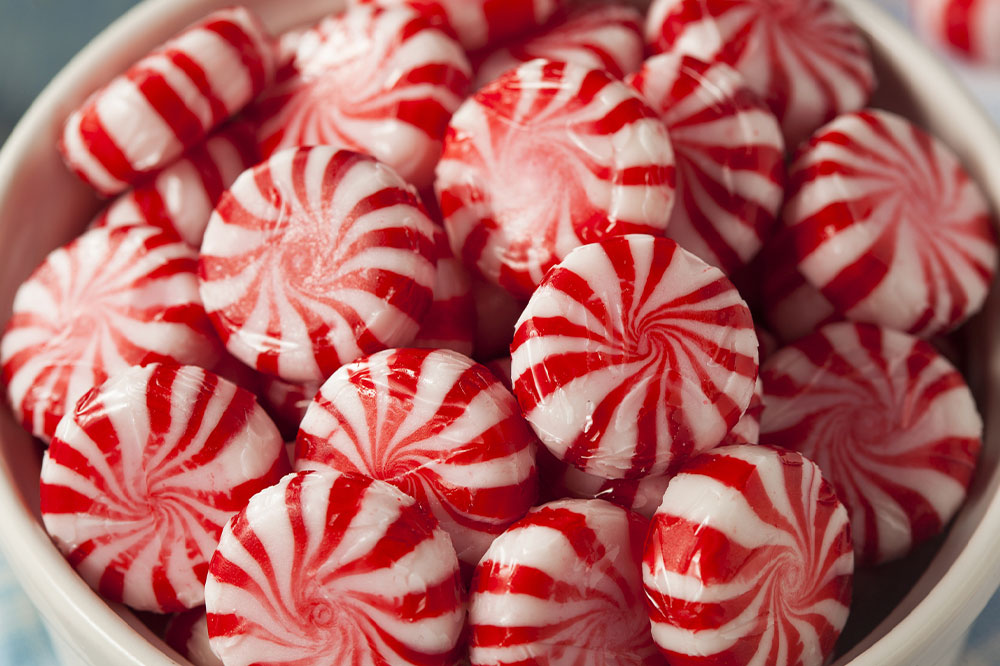A healthy smile plays a big part in one’s appearance. However, many common foods can be detrimental to teeth health, leading to the formation of plaque and cavities. Plaque is a thin, sticky, and invisible layer of bacteria and other substances that contribute to oral health problems such as gum disease and tooth decay. Over time, plaque formation can break down the enamel, and give rise to several dental problems.
To prevent these issues, it is important to take proper care of one’s teeth and avoid these 12 foods that can harm teeth health:
Candies
Candies such as lollipops, mints, and others contain high levels of sugar. Chewing or biting on such hard candies can also cause chips or cracks in one’s teeth, increasing the risk of decay. Further, sour candies contain not only more sugar but also acids. These can be extremely tough on one’s teeth, and lead to enamel erosion. Due to their sticky nature, the candies stay on the teeth for a long time, increasing the risk of tooth decay. It may be safer to switch to chocolate instead of sour candy and rinse the mouth immediately after.
Bread
When chewed, the starches in bread are broken down into sugars by the saliva. This can get stuck between the teeth and increase one’s risk of cavities. To prevent this, one may opt for whole wheat bread or less-refined varieties with no added sugar.
Potato chips
Like bread, potato chips are also a rich source of starch. This starch converts to sugar in the mouth, feeding bacteria and increasing the risk of oral health issues. So, one may limit their intake, and after eating them, be sure to floss to remove any leftover particles.
Carbonated beverages
Carbonated beverages are known for containing high levels of added sugar and zero nutritional value. These beverages also enable plaque to promote acid production in the mouth. They also have drying properties, reducing the amount of saliva in the mouth. The combination of acid and sugar can be detrimental to one’s teeth. Moreover, it is advisable to avoid brushing one’s teeth immediately after drinking soda, as it may quicken the rate of tooth decay.
Ice
According to the American Dental Association, chewing hard substances like ice can cause chipping and lead to cracked or broken teeth, or loose crowns. This can increase one’s risk of developing dental problems. Due to this, many experts advise against eating ice and suggest using it only when chilling beverages.
Citrus fruits
Although citrus fruits like oranges and grapefruits are delicious and full of nutritional value, they can erode the enamel and increase the risk of tooth decay. This is due to their high vitamin C content. To reduce the likelihood of dental damage, it is best to enjoy these in moderation at mealtime and rinse thoroughly afterward.
Apple cider vinegar
Apple cider vinegar is highly acidic, causing enamel wear. This can increase the chances of tooth decay. However, to mitigate any major risks, it is advisable to dilute apple cider vinegar with water.
Dried fruits
While dried fruits like apricots, figs, prunes, and raisins are a great snack option, they are also sticky. Thus, they can cling to the teeth, especially between cracks and crevices, promoting bacterial growth. This can make the teeth more susceptible to decay. To reduce the risk of tooth damage, it is advisable to rinse the mouth with water and follow it up with brushing and flossing after eating dried fruits.
Coffee
Coffee is a naturally acidic beverage, which can be detrimental to teeth health. Additionally, it contains tannins, which are sticky compounds that can make the teeth appear stained or discolored. Further, when mixed with creamers and sugar, coffee’s negative effects on the teeth are compounded. For those who enjoy coffee as part of their morning routine, it may be advisable to drink it through a straw and brush immediately afterward to reduce any harmful effects on the teeth.
Tea
Although popular belief suggests that tea may be a healthier alternative to coffee, research has shown that drinking tea can lead to tooth discoloration and erosion. Additionally, like coffee, teeth can also dry out the mouth, increasing the risk of bacterial exposure. This may be worsened with the addition of creamers and sugar. It is advisable to restrict tea consumption, limit the addition of sugar, and drink plenty of water afterward to reduce any undesirable impact on one’s dental health.
Pickled foods
Vinegar-rich foods such as pickles can be extremely harmful to one’s teeth. They can damage the enamel and de-mineralize them, increasing the risk of stains, discoloration, and cavities. So, it is important to practice moderation when eating them and drink lots of water to wash away any remnants in the mouth. Moreover, pairing pickled foods with less-acidic items such as cheese may help reduce any unwanted effects on the teeth.
Energy drinks
The main ingredient in most sports and energy drinks is sugar. However, they may often be unavoidable for athletes or those engaged in physical activity for long hours. To reduce the likelihood of tooth decay from energy drinks, be sure to check the labels closely, and opt for beverages that have low sugar content.
One must avoid the foods mentioned above and choose high-fiber foods and dairy products to improve dental health. High-fiber foods such as spinach and beans are not only nutritious but also aid saliva production and gently scrub the teeth to remove any stuck particles. Dairy products are a rich source of calcium, which helps strengthen the teeth and bones. They also contain casein, which plays an important role in stabilizing and repairing the enamel.
Additionally, one must focus on adequate water consumption throughout the day. Water helps wash off any sugar and acids from the teeth. Water is also a source of a mineral called fluoride, which can help protect against tooth erosion, and make way for a healthier smile.



